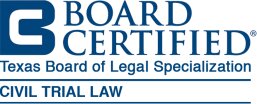Best Foreclosure Lawyers in Missouri
Share your needs with us, get contacted by law firms.
Free. Takes 2 min.
Free Guide to Hiring a Real Estate Lawyer
Or refine your search by selecting a city:
List of the best lawyers in Missouri, United States
About Foreclosure Law in Missouri, United States
Foreclosure is the legal process through which a lender can take possession of a property when a homeowner fails to make mortgage payments. In Missouri, foreclosure is typically a non-judicial process, meaning it does not usually require court involvement. This makes the foreclosure process faster compared to states where a court proceeding is required. However, there are specific state laws and procedures that both lenders and homeowners must follow throughout the process. Understanding Missouri's foreclosure laws can help homeowners know their rights and options if they are facing foreclosure or concerned about losing their homes.
Why You May Need a Lawyer
If you are facing foreclosure in Missouri, consulting with a lawyer can help you explore your options and protect your rights. Here are common situations where legal assistance is especially valuable:
- You are behind on your mortgage and have received a notice of default or foreclosure sale.
- You believe the lender did not follow Missouri’s required foreclosure procedures.
- You want to negotiate a loan modification or work on a repayment plan with your lender.
- You are considering bankruptcy as a way to stop or delay foreclosure.
- You suspect predatory lending or feel you were misled in your mortgage agreement.
- You want to understand how the foreclosure will affect your credit and future housing options.
- You are not sure if you can stay in your home during the foreclosure process.
A skilled attorney can review your circumstances, identify legal defenses, help with paperwork, and represent you in negotiations or court if needed.
Local Laws Overview
Missouri is primarily a non-judicial foreclosure state. This means most foreclosures happen outside of the court system through a process known as power of sale foreclosure. Key aspects of Missouri foreclosure laws include:
- The lender must provide notice of the foreclosure sale, commonly through publication in a local newspaper and, in some cases, by mailing notice to the borrower.
- The mortgage or deed of trust must contain a power of sale clause for non-judicial foreclosure to happen.
- There is no statutory right of redemption after a non-judicial foreclosure in Missouri. Once the sale is complete, the previous homeowner usually cannot reclaim the property by paying off the debt.
- Some deficiency judgments are permitted, meaning the lender can seek a court order requiring the homeowner to pay any remaining balance on the loan after the foreclosure sale.
- The timing of the process and specific notice requirements depend on the terms of the deed of trust and state law.
Understanding local laws is important, as missing deadlines or failing to respond to notices can limit your options to keep your home.
Frequently Asked Questions
What is the difference between judicial and non-judicial foreclosure in Missouri?
Missouri uses non-judicial foreclosure for most homes, which happens outside of court. Judicial foreclosure, which goes through the court, is less common and usually only happens when the loan documents do not allow non-judicial action.
How long does the foreclosure process take in Missouri?
The non-judicial foreclosure process in Missouri can take as little as a few months from notice of default to sale. The exact timing depends on the terms in the loan documents and how soon the lender acts.
Will I receive notice before my home is foreclosed?
Yes, lenders must give you notice of the foreclosure sale, often by publication in a local newspaper and sometimes by mailing notice to you directly. Check your loan documents and state law for specific notice requirements.
Can I stop a foreclosure after it has started?
You may be able to stop foreclosure by catching up on missed payments, negotiating a loan modification, or, in some cases, by filing for bankruptcy. Seek legal advice promptly to learn your options.
Am I responsible for any debt after foreclosure in Missouri?
Possibly. Missouri law allows deficiency judgments, so if your home sells for less than what you owe, the lender may ask the court to order you to pay the difference.
Can I remain in my home during the foreclosure process?
You typically can remain in your home up to and sometimes even briefly after the foreclosure sale. Once the new owner obtains legal possession, you may be required to leave.
What can I do if my lender did not follow the correct procedure?
If the lender fails to comply with Missouri’s foreclosure laws or the terms of your deed of trust, you may have legal defenses available. A lawyer can help you determine if improper procedures could halt or delay the foreclosure.
Does foreclosure affect my credit?
Yes, a foreclosure will significantly impact your credit and can remain on your credit report for up to seven years, making it harder to qualify for future loans or rental housing.
What if I have a government-backed loan like FHA, VA, or USDA?
Government-backed loans often have additional foreclosure protections and assistance programs. Check with your loan servicer or a legal professional familiar with these types of loans for guidance.
Can I get my home back after foreclosure in Missouri?
Missouri does not provide an automatic statutory right of redemption after non-judicial foreclosure, so once the home is sold, you generally cannot reclaim it by paying off the debt.
Additional Resources
If you need more information or assistance with foreclosure in Missouri, consider these resources:
- Missouri Attorney General's Office - Consumer Protection Division
- The Missouri Bar - Lawyer Referral Service
- Legal Services of Eastern Missouri, Legal Aid of Western Missouri, and other local legal aid organizations
- United States Department of Housing and Urban Development (HUD)-approved housing counseling agencies
- Consumer Financial Protection Bureau for mortgage and foreclosure information
These organizations can provide educational materials, referrals, or free and low-cost legal help depending on your situation.
Next Steps
If you are facing foreclosure or have concerns about your mortgage, it is essential to act quickly. Gather all relevant documents, such as your mortgage paperwork, communications from your lender, and any notices you have received. Contact a qualified Missouri foreclosure attorney or housing counselor to discuss your situation. Many legal professionals offer free consultations or work with legal aid organizations that can assist if you meet income requirements. Do not ignore the situation, as delaying action can limit your options to protect your home and your financial future.
Take the first step today by reaching out to a reputable legal professional or resource in your area to get personalized advice and support.
Lawzana helps you find the best lawyers and law firms in Missouri through a curated and pre-screened list of qualified legal professionals. Our platform offers rankings and detailed profiles of attorneys and law firms, allowing you to compare based on practice areas, including Foreclosure, experience, and client feedback.
Each profile includes a description of the firm's areas of practice, client reviews, team members and partners, year of establishment, spoken languages, office locations, contact information, social media presence, and any published articles or resources. Most firms on our platform speak English and are experienced in both local and international legal matters.
Get a quote from top-rated law firms in Missouri, United States — quickly, securely, and without unnecessary hassle.
Disclaimer:
The information provided on this page is for general informational purposes only and does not constitute legal advice. While we strive to ensure the accuracy and relevance of the content, legal information may change over time, and interpretations of the law can vary. You should always consult with a qualified legal professional for advice specific to your situation.
We disclaim all liability for actions taken or not taken based on the content of this page. If you believe any information is incorrect or outdated, please contact us, and we will review and update it where appropriate.
Browse foreclosure law firms by city in Missouri
Refine your search by selecting a city.















